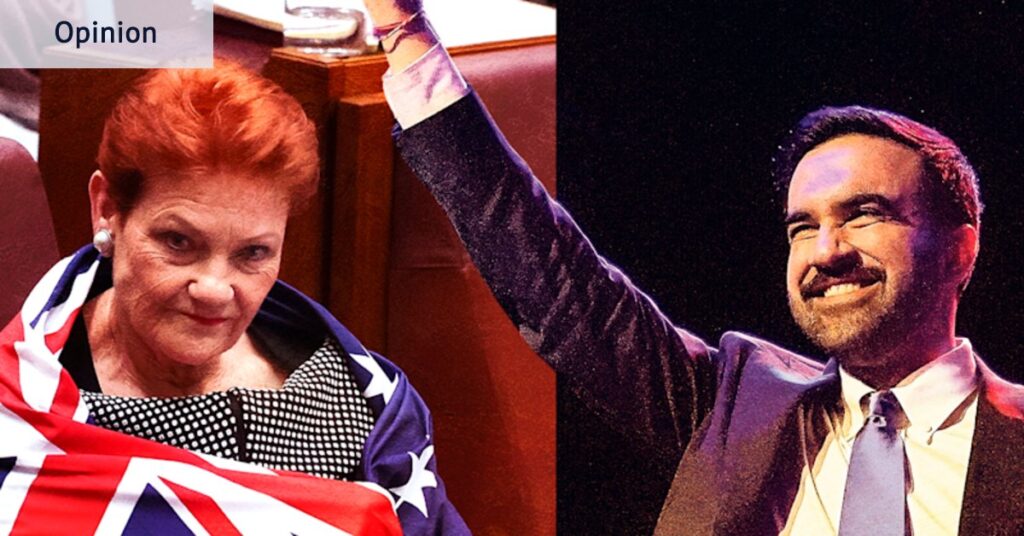
In a week marked by political upheaval, two seemingly disparate events captured global attention: Zohran Mamdani’s unexpected victory in the New York City mayoral election and the surprising rise of One Nation in Australia, with conservative figures like Pauline Hanson, Barnaby Joyce, and Andrew Hastie gaining popularity. While Mamdani’s win represents a shift towards progressive politics in a traditionally Democratic stronghold, One Nation’s ascent underscores a growing conservative sentiment in Australia, with polls indicating up to 14 percent support.
Both developments seem to defy conventional political wisdom. In the United States, a socialist Muslim anti-Zionist like Mamdani was considered unelectable, while in Australia, the political center was believed to be the path to success. However, these events might not signify a break from the norm but rather a continuation of existing trends shaped by long-term social changes.
Zohran Mamdani’s Campaign: A New York Revolution
Mamdani’s victory highlights a significant shift in New York City’s political landscape. Despite attacks from the Democratic establishment on his stance on Israel, Mamdani garnered support from a diverse voter base, including a third of Jewish New Yorkers. This shift suggests a broader change in American attitudes towards Israel but was primarily driven by Mamdani’s focus on pressing local issues like the cost of living.
His campaign promised fast and free public transportation, increased taxes on the wealthy, government-priced grocery stores, and rent freezes. These proposals resonated with voters who felt alienated by the traditional Democratic platform, emphasizing economic concerns over foreign policy debates.
However, Mamdani’s success is confined to a heavily Democratic city, raising questions about the broader applicability of his approach. While he managed to attract some Trump voters by prioritizing economic issues, this strategy’s effectiveness in swing states remains uncertain.
One Nation’s Resurgence: A Rural Reawakening
Meanwhile, in Australia, One Nation’s resurgence reflects a different political dynamic. On the eve of the recent election, polls indicated a late surge for One Nation, challenging the Coalition’s dominance. However, the party’s actual performance fell short of expectations, with a 6.4 percent vote share compared to the predicted 10.5 percent.
This discrepancy highlights the complexities of Australia’s political landscape, where urban and rural divides play a crucial role. The Coalition, particularly the Nationals, has traditionally held sway in rural areas. But One Nation’s rise suggests a potential shift, as rural voters increasingly seek alternatives to the established parties.
The Urban-Rural Divide: A Global Phenomenon
The contrasting fortunes of Mamdani and One Nation underscore a broader trend in modern politics: the growing divide between urban and rural voters. In the United States, this divide has given Republicans a structural advantage, as rural areas overwhelmingly support them. In contrast, Australia’s urbanization means the Coalition faces challenges in both urban and rural constituencies.
“In 2024, Trump won rural America by about 40 points. Meanwhile, Australia’s May election revealed a 55-45 split against the Coalition, highlighting the urban-rural chasm.” — Political Analyst
For Mamdani and One Nation to bridge this divide, they would need to appeal beyond their traditional bases. Mamdani, as a city politician, might not need to venture into rural politics, but One Nation’s gains remain largely rural, with little indication of urban expansion.
Implications for Future Elections
The implications of these developments are profound. For the Coalition in Australia, One Nation’s rise could force a reevaluation of strategy, as the party risks losing rural support while struggling to gain urban voters. This precarious position could lead to a zero-sum game, where gains in one area are offset by losses in another.
In the United States, Mamdani’s success may inspire progressive movements within the Democratic Party, yet the challenge remains to translate this momentum into broader electoral success, particularly in swing states.
As political landscapes continue to evolve, the stories of Zohran Mamdani and One Nation serve as reminders of the complexities and contradictions inherent in modern democracy. Their successes and challenges will undoubtedly shape the strategies of political parties on both sides of the globe in the years to come.







